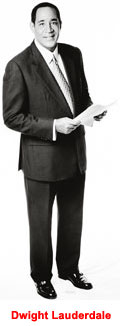
 |
“It’s
going down… they snatched the kid!”
The producer hung up, but I knew exactly what that meant: the government was making its move to send Elian Gonzalez back to Cuba! I jumped out of bed and less than an hour later was live on the air describing heavily armed federal agents storming a house in Miami’s Little Havana and threatening to stop anyone who got in their way. Someone yells in my ear, “Throw it to reporter Rad Berky! A major intersection is shut down and on fire!” The next pictures we see are angry protesters filling the streets... setting fires... fighting police and threatening our news crews who dared show the world what they were doing. As dawn broke and people woke up to these pictures of Miami on fire, we faced a new challenge: telling the story without fanning the flames. With technology that brings the action into homes as it’s happening comes the added responsibility of not becoming part of the problem. We used our helicopter, Sky 10, to show viewers some young people who took advantage of the situation just to destroy property. Their motives had nothing to do with Elian Gonzalez. Once they realized they couldn’t hide from our eye in the sky, most of them stopped and went home. As we continued to
broadcast pictures of Miami burning, WPLG political reporter Michael Putney
and I shared with viewers our experiences reporting from Cuba. I recalled
an image I’ll never forget: a little old lady who could have been
my grandmother standing in a ration line in Havana for six hours to get
four hard rolls. I hoped the perspective that Michael and I tried to convey
would help our viewers comprehend why some Cuban Americans were so vehemently
against sending the boy back. My co-anchor, Kristi Krueger, talked about
how she would feel if someone took her child to another country and refused
to give him back. On this early Saturday morning, I like to believe the
collective experience of the WPLG team set us apart. No sooner had the embers cooled from the Elian Gonzalez saga, another phone call. This one from a friend asking, “What are you people in Miami doing?” It was the day after Election Day, and once again the eyes of the world were on the Sunshine State to find out who would be our next president. We were back on the air around the clock with live pictures of angry Republicans storming election headquarters to stop the recount. I don’t remember which recount; there were many. There were no scripts. We were swimming in uncharted political waters, and the tide kept changing. No sooner had we explained one court decision then another court was considering the issues. University of Miami legal experts became part of our news team. Do you know how difficult it is to get lawyers to speak in terms we all can understand? But we got through it, and the nation got its president. We owned this story! The networks and their affiliates turned to Post-Newsweek stations in Miami, Orlando, and Jacksonville to get the latest on pregnant, hanging, and dimpled chads. C-SPAN broadcast the top of our 5 p.m. newscast every day, which only spawned more phone calls from across the country asking, “What are you people in Miami doing?” I can’t speak for the entire region, but I have my answer. I’m an eyewitness to history with the best seat in the nation. That’s what I’m doing, and loving every minute of it. Y2K. Whew, what a year!!! |
|||
|
|
 |
|||
|
|
|
|||
|
||||
 |
Footage of a van swept away in dangerous flooding in Texas. KSAT /San Antonio, October 23 |
|
Celebrating the news that Jacksonville will host the Super Bowl in 2005. WJXT /Jacksonville, November 1 |
|
|
|
Exposing dangerous electrical wires on light poles near Detroit schools and playgrounds. WDIV /Detroit, July 19 |
![]()